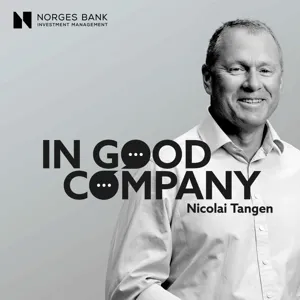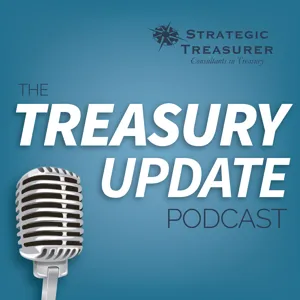Podcast Summary
Andreessen on the Macro Economics of Making Money and the Role of AI as the Next Platform Shift: Andreessen believes that AI represents the next platform shift, potentially as significant as the microprocessor, due to the vast imbalance between capital seeking investment opportunities and the limited number of opportunities available. His venture capital firm, Andreessen Horowitz, is heavily investing in AI.
Key takeaway from this conversation with Marc Andreessen is that we're in the midst of a significant macroeconomic issue when it comes to making money, as there's a vast imbalance between the amount of capital seeking productive investment opportunities and the number of opportunities available. However, Andreessen believes that technology, specifically AI, represents a new platform shift that could lead to the creation of thousands of new application categories and industries. This perspective is rooted in history, as the tech industry has historically been fueled by foundational technologies like mainframe computers, mini computers, client-server computers, personal computers, and mobile devices. Andreessen's venture capital firm, Andreessen Horowitz, is betting heavily on AI as the next platform shift, which could potentially be on par with the microprocessor. The fight in the AI race is multifaceted, with elements related to chips, money, people, and electricity, and Andreessen sees opportunities in both core technologies and various use cases of AI.
From 80-year overnight success to industry disruption: AI's long-awaited breakthrough in 2022 led to rapid advancements and massive investments in chips, data centers, power sources, and software development across industries.
We're witnessing an unprecedented shift in technology with AI, which can be described as an "80-year overnight success." Although the foundational technology of AI, neural networks, was first proposed in a 1943 paper, it took several decades for it to become a viable and transformative technology. The breakthrough moment came in 2022 with the introduction of ChatGPT, leading to a rapid advancement in AI capabilities. This dramatic leap in functionality has caused a ripple effect throughout the tech industry, with every sector racing to adapt, innovate, and build on AI. Companies are investing heavily in chips, data centers, power sources, and software development to keep up with the demand for AI technology. The future of AI is still uncertain, with debates on whether a few large models will dominate or if there will be many smaller models. Regarding your question about last year's statement about integrating AI into everything, it's important to note that the context and specifics of that statement should be considered. Integrating AI into various industries and applications can bring significant benefits, but it's crucial to address ethical, privacy, and security concerns. Additionally, it's essential to ensure that the development and deployment of AI technology are done responsibly and sustainably.
Geopolitical competition in AI race between Western democracies and China: The geopolitical debate around AI focuses on winning the race against China, with the West's advantages in innovation, entrepreneurship, and a decentralized system currently positioning it competitively, but the challenge of coordinated efforts in a decentralized system remains.
There are two significant policy debates surrounding Artificial Intelligence (AI) - one focused on domestic regulations due to fears and uncertainty, particularly in the EU and the US; and the other centered on geopolitical competition with China. The geopolitical conversation emphasizes the importance of winning the AI race against China, as both the Western democratic regimes and Chinese communism are major nation-states with aspirations to transform the world. The outcome of this competition could mirror the Cold War victory of the West, which was achieved through technological, economic, and military superiority. The West, with its advantages in innovation, entrepreneurship, and a decentralized system, is currently in a competitive position against China in the AI race. However, its decentralized system also presents a challenge in terms of planning and coordinated efforts to maintain and extend this lead.
Different approaches to technology strategy: The US and Europe's robust, dynamic systems offer unique advantages and disadvantages in the geopolitical tech conflict. China's centralized approach offers control but stifles entrepreneurship. Investing in each side's strengths is vital for societal progress and competitiveness.
There is no single top-down technology strategy in the US or Europe due to their robust and dynamic systems. Instead, each side brings unique strengths and weaknesses to the table in the ongoing geopolitical conflict. The Chinese system, with its centralized command and control, offers advantages like direction and control, but also disadvantages such as attempts to crush entrepreneurship. On the other hand, the US and Europe, with their dynamic economies and entrepreneurial systems, have the potential to benefit greatly from their historical role as leaders in technological innovation. Investing in this dynamism is crucial for both sides to continue their positive societal progress and maintain their competitive edge.
Decrease in industry-government relationship leads to lack of progress: Europe needs to focus on fostering technological change and innovation in defense, energy, law, education, and healthcare sectors to become more dynamic and competitive.
Both American and European societies have become more cautious and risk-averse towards technological and economic progress in the last 50 years, leading to a significant decrease in the relationship between industry and government. This hostility between the two sectors has resulted in a lack of technological change and innovation in various sectors such as defense, energy, law, education, and healthcare. The speaker emphasizes the importance of these sectors in driving growth and creating opportunities for future generations. The US, through its American Dynamism program, is investing heavily in technological energy in these sectors. Europe, once a technological powerhouse, has fallen behind, with only one out of the top 50 technology companies being European today. To become more dynamic, Europe needs to focus on fostering technological change and innovation in these sectors.
Europe's prioritization of regulation over innovation: Europe's focus on regulation has led to geopolitical stresses and consequences. VCs must align with their values and the geopolitical landscape in their investment decisions.
Europe's prioritization of regulation and risk aversion over innovation, particularly in the energy sector, has led to geopolitical stresses and consequences that are becoming increasingly clear. This choice has been made by political leaders who have so far received voter support. For venture capitalists and investors, the integration of technology into the race between superpowers necessitates taking a clear stance. Our firm, for instance, has always been aligned with the United States and the West, and we adopt the U.S. government's view of friends and allies in our national security-related programs. This position was once controversial in Silicon Valley, but the invasion of Ukraine by Russia has changed the landscape, and the tech industry's involvement in national security is no longer seen as undesirable. The consequences of prioritizing regulation over innovation are becoming clear, and society will need to decide whether to continue down this path. Ultimately, the responsibility of venture capitalists is to support technologies and companies that align with their values and the geopolitical landscape.
Silicon Valley's shift towards national security and defense technology: The Russian invasion of Ukraine and other global events underscored the importance of national security and advanced technology for protecting democracies, leading to a change in attitude towards defense tech companies in Silicon Valley and a focus on growth opportunities in this sector for investors.
The Russian invasion of Ukraine and other global events served as a wake-up call for many in Silicon Valley and the US, highlighting the importance of national security and the need for advanced technology to protect democracies. This shift in perspective led to a change in attitude towards defense technology companies, like Anduril, which were once controversial in the valley. On a different note, large institutional investors face the challenge of finding growth opportunities as there are only a few places and people capable of generating significant growth. Therefore, focusing on these areas and supporting the next generation of innovative companies and industries is crucial for investors seeking growth.
Investors bringing more than just money: Investors' influence, authority, and societal impact can significantly contribute to a company's growth beyond financial resources.
Investors bringing more than just financial resources to the table can significantly contribute to a company's growth. Their influence, authority, and persuasive capability in their societies can be invaluable. This not only benefits the investment aspect but also contributes positively to society as a whole. It's essential to aspire for growth, not just for financial gains, but for societal advancement as well. A heartfelt thank you to our guest for sharing their insightful thoughts. Wishing them the best of luck in their future endeavors. It's been a pleasure having this conversation.





